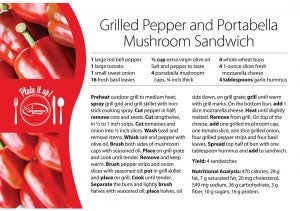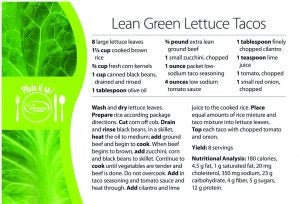Seasonings: Building a better lunch
Published 8:37 am Wednesday, August 16, 2017
BY ALETHEA PRICE
Easy takeaway tips for packing a healthy lunch, preventing lunch-boredom and healthy snacks
Starting the day with a balanced breakfast tends to get you in the mindset of making healthier food choices throughout the day. After having a healthy beginning meal, it’s easier to want to follow that up with a smart snack and even smarter lunch.
School lunches have gone through many changes in recent years, some for the better. We have almost lost the timeless tradition of pizza and corn as a school lunch option. One thing that will continue to put the power of the lunch menu in the hands of hungry kids and concerned parents everywhere is the sack lunch. Packing a healthy lunch is a habit worth adding to your back to school to-do list.
One of the easiest tips to give families on how to get kids to eat healthy is to involve them in food preparation. Think back to when you were a kid. Did you have much say in what you did, where you went or especially what you ate? Of course not, you were a kid. All the decisions were left to the adults of the house. When you let a child select and help prepare a meal, they are more likely to eat it. Packing their own healthy lunch gives them ownership of something. They feel empowered and are excited to try new things.
Allow your kids to help pack their lunch each night before bed. While you’re at it, pack a healthy lunch to take to work with you. This is a great opportunity for you and your child to build healthy habits and bond over a shared activity. Make it a routine and you’ll be pleasantly surprised at the results.
So what exactly goes into making a healthy lunch? Just like any meal, balance is key. The same rules apply to lunch as they do to breakfast. An unbalanced lunch can cause an afternoon crash resulting in the need for a desk nap. Neither you nor your child can stop in the middle of the day for a nap so let’s avoid reaching that point.
Keeping all the food groups in mind, choose lunch options that represent most of them. Try to choose lean protein, whole grains, fruits, vegetables and low fat dairy products. Having a variety of these items on hand helps prevent sack lunch boredom. Lean proteins can include grilled chicken, tuna and lunch meats just to name a few. Whole grain products such as bread, pita and wraps make delicious sandwiches. Though there is no need to limit yourself to just sandwiches. Lean proteins can be used as salad toppers and in lettuce wraps for a low carb option. Vegetable proteins such as black beans can be used as an alternative as well. Hummus, a spread made from chick peas, is a great substitute for mayo on a sandwich or as a tasty dip for veggies. Fruit and yogurt can be packed for a healthy sweet treat. Try some seasonal fruits such as cantaloupe and honey dew melon slices as a side or snack.
That reminds me: Snacks have an important place in a lunch box too. Snacks can play a very big role in managing multiple body functions. Having snacks throughout the day can help your body by regulating blood sugar, boosting your metabolism and managing hunger. Think of a snack as a mini energy boost to power you through the end of the day. They should be made with fresh ingredients, easily accessible and, of course, should taste great. Healthy snacks can be made and packaged in advance for easy accessibility. Keep food safety in mind and use cold packs to keep your lunch nice and cool.
Easy takeaway tips for packing a healthy lunch include making it a group effort, preventing sack lunch boredom and don’t forget a healthy snack. Let your kids get active in the kitchen. They want to help so let them. It’s a perfectly good teachable moment that builds a healthy habit. Keep a variety of foods available to use to prevent sack lunch boredom. Last but not least, a healthy snack can turn and uneventful afternoon into a productive one with a burst of energy. Don’t exclude yourself from the lunchtime change-up. Make it the first step toward a healthier family.
Cooking at home and sharing a meal at the dinner table doesn’t have to be difficult. Next week we will discuss meal planning for easy meal prep.
If you have questions or comments about the column, or if you’d like more information feel free to contact me by email at a.price@uky.edu







